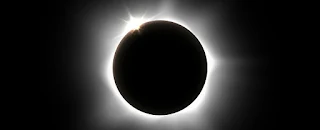The total solar eclipse that will sweep across the entirety of the continental United States on August 21 has the country’s emergency services officials bracing for impact.
The celestial event, the first of its kind in nearly a century, has so many stargazers hyped up that disaster-level preparations are being made to ensure that the swarms of travelers expected to concentrate in the prime viewing areas will be safe, Newsweek reported.
The total eclipse will last just two minutes, but it’s already being touted as the event of the century. As many as 7.5 million people are predicted to pack into a 70-mile band that stretches from Oregon to South Carolina — the path of the total eclipse’s shadow.
Visitors are expected to clog interstates and local roads for days before the event, Brad Kieserman, vice president of disaster operations and logistics for the American Red Cross, told Newsweek. He compared it to the rush during emergency evacuations.
And once all the amateur astronomers arrive, they’ll need food and water, lodging and restrooms. Officials are bracing for toilet shortages, cellular blackout zones and the potential for emergency service vehicles to be stuck in traffic.....https://sptnkne.ws/fbp9
[sputniknews.com]
31/1/7
The celestial event, the first of its kind in nearly a century, has so many stargazers hyped up that disaster-level preparations are being made to ensure that the swarms of travelers expected to concentrate in the prime viewing areas will be safe, Newsweek reported.
The total eclipse will last just two minutes, but it’s already being touted as the event of the century. As many as 7.5 million people are predicted to pack into a 70-mile band that stretches from Oregon to South Carolina — the path of the total eclipse’s shadow.
Visitors are expected to clog interstates and local roads for days before the event, Brad Kieserman, vice president of disaster operations and logistics for the American Red Cross, told Newsweek. He compared it to the rush during emergency evacuations.
And once all the amateur astronomers arrive, they’ll need food and water, lodging and restrooms. Officials are bracing for toilet shortages, cellular blackout zones and the potential for emergency service vehicles to be stuck in traffic.....https://sptnkne.ws/fbp9
[sputniknews.com]
31/1/7

No comments:
Post a Comment
Only News